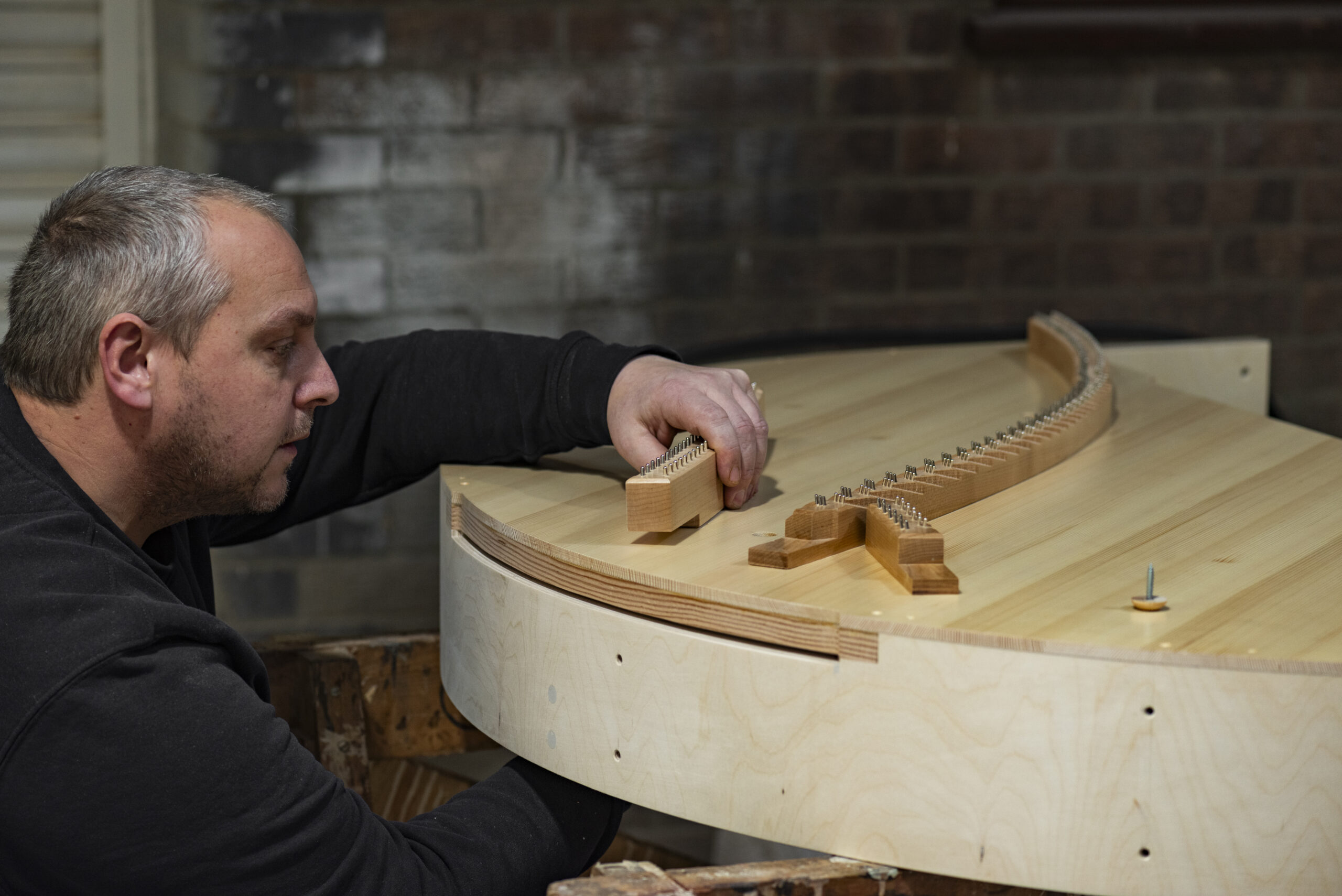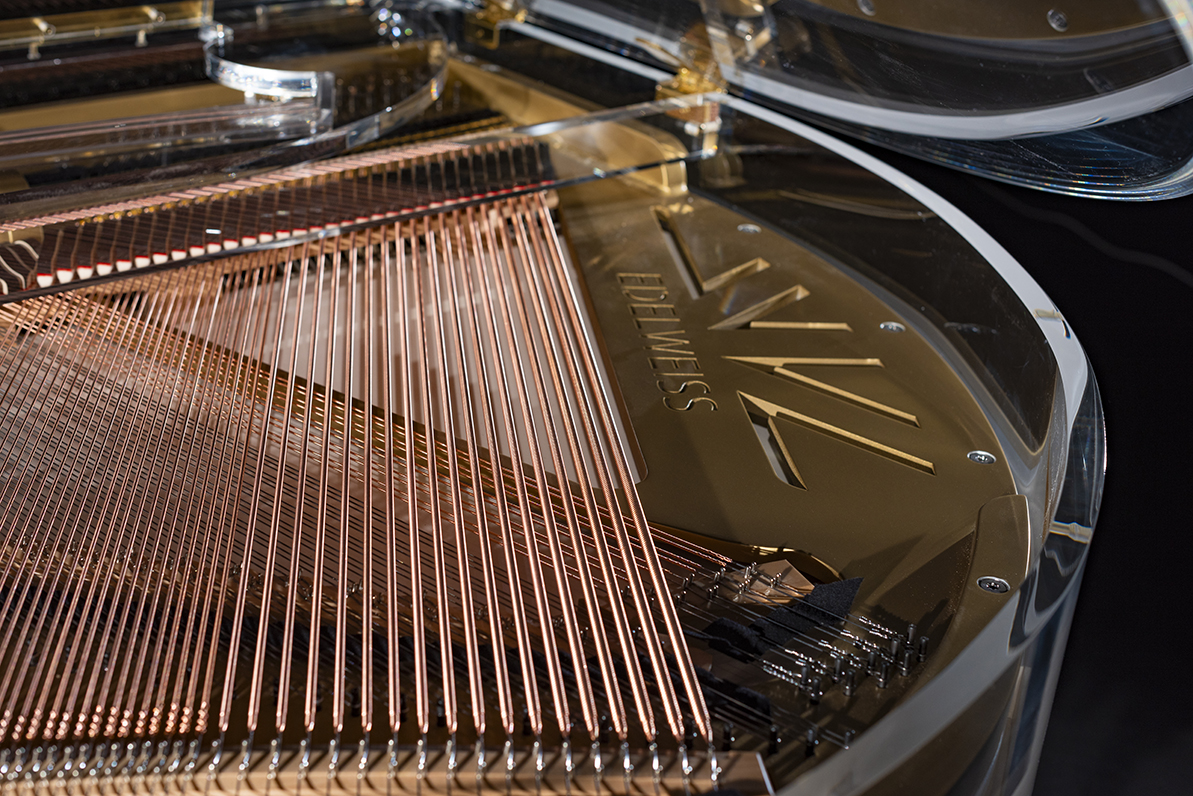Being one of the youngest piano makers in the market we can fully understand any prospective customers asking themselves this question.
This article is to help explain the process of ascertaining what is “good” in the piano world and how we ensure our pianos are among the best in the world.
Ultimately, the biggest variable on deciding if a piano is “good” is you!
Whether you are a pianist, or a someone that loves music but cannot play, will have an influence on what you classify as a “good piano” as what you want from your piano will be different depending on the experience and purpose you are buying it for.
That is why there are around fifty global piano brands in the market today.
There is a similarity when comparing a luxury car with a budget car – they both will get you to your destination but the speed, experience, and enjoyment they give in getting you there is dependent on what you want as an owner.
What dictates the tone, touch, volume, and everything that goes into making a piano a “good piano” comes down to two basic factors:
– The quality and type of materials from which it is made.
– The design and method of construction.
Once these basics have been established, the other qualities and characteristics can be influenced, changed, and varied in a way chosen by the manufacturer for their pianos to sound and respond, and it can also be further enhanced through the attention of a skilled piano technician. But what you like is always subjective to you, and it can sometimes take several technician visits until your piano is exactly right for you.

Why is the sound of a piano so subjective – surely all pianos of a certain brand and model should sound the same?
The reason the sound and tone of a piano is so subjective is because we all have ears(!), and they are all uniquely our own, and so every person hears and interprets sounds in their own unique way, often being very slightly differently from someone else.
The largest proportion of every acoustic piano is crafted from wood. It is essential to ensure that only the best quality timbers are used as this will have a direct relationship with the instruments tone and performance, and along with this, there is always an element of natural variation – even after tightly controlling exactly what material you use.
This results in the fascinating fact that sometimes you can have three pianos that are theoretically exactly the same, having been built in the exactly same workshop, having the exact same parts, and built following the exact same processes, yet all three sound subtly and beautifully different: this is because a piano is a real living instrument.
Although these differences are normally just fine nuances, if you are particular and discerning as to how you want your piano to sound you really need to experience and hear it for yourself to decide if a particular piano sounds right for you, in the context of what you are purchasing it for.
Typically, a pianist will revel in a powerful and expressive piano, reminiscing fondly about the responsive vibes and feedback they can actually feel coming from the piano. However, someone listening to that same pianist performing on the same piano in the home setting – as opposed to a concert hall – could well find this overpowering and intimidating; I suppose in a similar way a rally driver might be enthralled by a high speed traversing of a difficult race track… but a companion who went along for the ride could well be feeling nauseous!
So it is important to consider what you are purchasing your piano for: if you don’t play, but instead want to enjoy the beautiful experience of having live music in your home, you will most likely want the piano to sound slightly softer, maybe more mellow to be the perfect background music for when guests come around, but also be able to perform with invigorating gusto when called on to by a pianist.

What is a “good piano” – the materials that are used to make it.
The quality of materials used to make a piano are one of the most important influencing factors in making a piano “good.”
The way a piano makes sound is through vibrations. The felt hammer strikes the piano string making a sound that then goes through the piano’s bridges and into the soundboard which acts as a transducer, transforming the vibrations of the strings into audible waves of sound.
The rim of the piano is also instrumental in the sound the piano makes as the audible waves of sound travel along the soundboard and hit the rim of the piano before returning to the centre of the soundboard.
If the rim absorbs the soundwaves the soundwaves going back along to the centre of the piano are at much less volume therefore impacting the sound and tone of the piano.

Ensuring that all materials on the piano are from the highest quality wood that has not only the best resonance, but also durability, is what determines a “good piano.”
The coveted tonewood for a piano soundboard is Sitka Spruce. The timber of this tall tree is renowned for its high strength to weight ratio and excellent flexibility – a must for a board that is meant to amplify and resonate with the vibration of a steel wire.
Grown in North America and Europe – European Spruce; Picea Abies – produces a beautiful light grade – A fine grain wood with very little sap or resin pockets and has the required high strength to weight ratio. But it is only from the forests that grow at the higher altitudes where the harsh environment and altitude makes for a short growing season, that tonewood with the fine growth ring structure essential for a pure sound can be found – this is the tonewood used in an Edelweiss.
The best wood for the rim and other parts of the piano are hardwoods – laminated hardwoods – due to the shape of the carcases. This is because hardwood does not absorb or deaden the soundwaves of the pianos resulting in a better sound and tone.
Every Edelweiss Soundboard is made from European Sitka Spruce.
The rim and other structural parts of an Edelweiss piano are made from laminated hardwoods.

What is a good piano – the design and method of construction.
The difference between a piano being made in a factory on a production line and a piano that is hand-built is the amount of time given to each stage of the manufacturing process and the ability to be able to finely hone each component of the piano appreciating how it has been formed in its natural state to achieve a perfect fit, rather than working with a one size fits all policy.
As already mentioned, most of a piano is made of wood, and wood always has a level of natural variation. The ability in the build process to be able to adapt and customise the parts and components whilst capitalising on any natural inherent qualities will result in a premium piano sound.
Take the crown of a soundboard – this will often vary from soundboard to soundboard which inevitably then affects the shape and the fitting of the bridges: these two components alone make one of the most important components in the making of a piano sound.
On a production line the piano understandably is always made in a certain way with little allowance for any inevitable variation, which ultimately can result in more a ‘soulless’ sound lacking in that life and vitality – an unfortunate compromise due to not be able to adapt to the state of the natural components that the piano is made from.
When a piano is hand built it can allow for a measure of natural variation and allows scope in the hands of the skilled artisans to shape and form every part and component to allow for maximum resonance and result in the release of the piano’s voice.
All Edelweiss pianos are built by hand.

Are Edelweiss Pianos good?
In summary, all Edelweiss Pianos are built to the exacting standards that all the very best piano makers and brands of today adhere to, with the addition of some cutting-edge innovations pioneered uniquely by Edelweiss.
We believe we make some of the best sounding small grand pianos in the world but the judge of this is you!
We would welcome you to come to our workshops in Cambridge or our showroom in Harrods and experience an Edelweiss for yourself.
